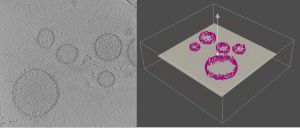Allies, coordinado a través del Instituto de Investigación en Inteligencia Artificial (IIIA-CSIC) y la Conexión en Inteligencia Artificial del CSIC (AIhub-CSIC), tiene como objetivo incorporar a 17 investigadores postdoctorales para participar en proyectos de investigación de vanguardia durante dos años. Se llevará a cabo en dos convocatorias diferentes y en colaboración con 18 centros de investigación del CSIC distribuidos por toda España, lo que permitirá abordar los desafíos científicos de la IA, la robótica y la ciencia de datos, al mismo tiempo que se trabaja en soluciones que contribuyan a la consecución de los ODS.
Nueve líneas interdisciplinares
En esta primera convocatoria, los interesados pueden participar con su propio proyecto de investigación en nueve líneas interdisciplinares que abarcan tanto la investigación básica en IA como aplicaciones en diversas áreas del conocimiento, como la aplicación de la IA en ciencias sociales, el desarrollo de nuevos fármacos, la mejora de la visión y la cognición de robots, entre otros. Cada una de estas líneas de investigación se relaciona directamente con uno o varios ODS, contribuyendo al compromiso global de una sociedad más justa, igualitaria y sostenible.
El periodo de solicitudes para la plaz en el CNB-CSIC está abierta hasta el 1 de junio de 2024 a través de la plataforma online de la convocatoria. Los candidatos seleccionados serán evaluados por un comité de expertos nacionales e internacionales en sus respectivas áreas de especialización, y se asegurarán altos estándares en materia de igualdad de oportunidades, inclusión, transparencia y no discriminación. La selección y evaluación de investigadores en el marco de Allies se llevará a cabo en tres etapas: admisibilidad, evaluación de méritos y entrevistas personales.
Los nueve investigadores e investigadoras postdoctorales seleccionados serán los primeros que formarán parte de una gran comunidad científica en IA y AI for Science, que actualmente incluye a cerca de 400 científicos del CSIC distribuidos por toda la geografía española y que se articula a través de la red AIhub-CSIC. Estos recibirán una formación para enriquecer su carrera científica que se completará con otras habilidades, como son la aplicación de la ética en la investigación en IA, la formación en transferencia de tecnología y en el desarrollo de habilidades personales.
Accede a más información sobre las 17 líneas de investigación en el siguiente enlace o sobre la convocatoria y cómo participar en Conexión AIhub-CSIC y en las redes sociales del programa Allies.






